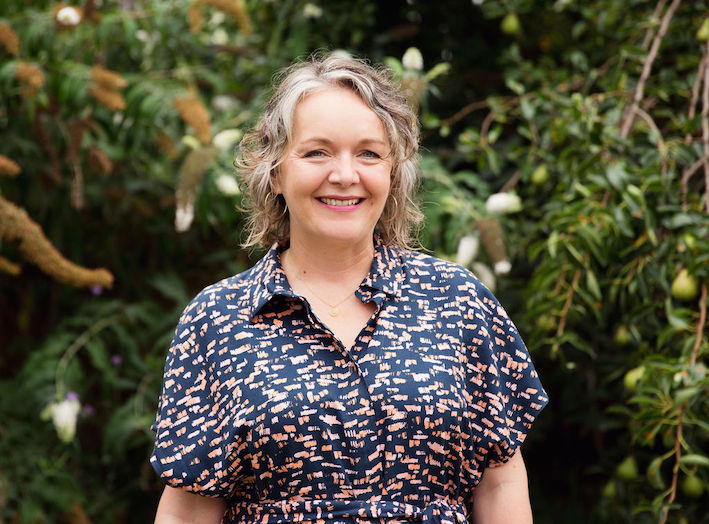
If there’s one vitamin most people have heard of, it’s vitamin C. Whose mum didn’t urge them to eat fruit – preferably oranges – to keep up their vitamin C levels? When you catch a cold, you drink hot water with lemon – because it contains vitamin C - and even people who are most sceptical of nutritional supplements pop the occasional vitamin C pill when they feel under the weather.
There is lots of research about the efficacy of vitamin C and its role in immunity, particularly in warding off colds and flu. As you head out again into the world, it seemed a good time to have the vitamin C conversation. So today, I’m going to be talking about whether you really need to supplement, what vitamin C actually does.
Do you need to supplement?
…After all, nature wouldn’t have left you defenceless, would it, if there is a crucial vitamin contained in food. Can you not just eat fruit and veg and be done?
Adults in the UK are advised to consume 40mg [Ireland: 80mg] of vitamin C per day, which is just enough to ward off scurvy, a deadly disease caused by severe vitamin C deficiency.
That little may not be enough to ensure optimum immune defence, though. Worldwide, recommendations for vitamin C range from 40 to 220mg per day. Most other animals can make their own vitamin C in the liver. Due to a genetic mutation, humans can’t. Other mammals produce several grams of vitamin C per day. And they can increase production more than 10-fold when under stress.
Humans are not the only mammals that are unable to generate vitamin C. Others are primates, guinea pigs, and fruit bats. As our closest relatives – the great apes – have the same mutation, it stands to reason that humans were already unable to produce vitamin C when evolution sent them off on their own path millions of years ago.
We – and the other non-producing animals – have had plenty of time to adapt. To some extent, we make up for the inability to produce the vitamin by having red blood cells that can recycle “spent” vitamin C and re-use it. But our body cannot store vitamin C; we have to ingest it every single day.
What does vitamin C actually do?
Vitamin C is involved in 15,000 metabolic processes, and no other vitamin has such a wide variety of effects. As it is an antioxidant, ascorbic acid (a form of vitamin C) plays an important role as a free radical scavenger. That means it protects fats, proteins, DNA and cell membranes from damage caused by free radicals. Now, don’t worry, I’m not going to list the 15,000 jobs of vitamin C, but I’d like to highlight a few that are crucial in your immune defence.
Vitamin C protects mucous membranes, your “skin on the inside”, inside the mouth, the nose, the lungs, along the digestive tract, the urethra and the vagina. Vitamin C is crucial for collagen production, a protein that strengthens your skin as well as the mucous membranes. As all of these surfaces are in contact with the outside world and, therefore, potentially nasty microbes, you want them to be healthy, strong and hold tight. Vitamin C also protects those membranes from free radical damage and accelerates healing from injury.
Vitamin C supports the immune response by stimulating the production of special immune cells called B-cells, T-cells and phagocytes. More B- and T-cells means more antibodies to fight against trouble like viruses – and this is a good thing. Phagocytes are immune cells that gobble up intruders like viruses and bacteria, a bit like the iconic arcade game icon Pac Man. Vitamin C protects these phagocytes from oxidative damage. It also keeps them supple, helps them work better, and promotes the “suicide” of damaged cells (called apoptosis).
A crucial function of vitamin C is that it helps dampen down inflammatory cytokines, substances the body produces when under attack. By interfering with the production of certain cytokines, vitamin C can reduce the risk of a “cytokine storm”, which is something you really don’t want to happen.
Vitamin C is a co-factor for enzymes that are responsible for phase 1 of liver detoxification. In that function, it helps your body metabolise medication. It improves iron absorption, reduces the toxicity of heavy metals and promotes their excretion.
As if that wasn’t enough, vitamin C protects proteins from damage caused by eating too much sugar. The damage caused by excess sugar in the bloodstream is how diabetes is diagnosed. The diabetes marker HbA1c is a protein damaged by sugar. Damaged proteins can’t do their job anymore, and it is this that leads to the many symptoms of diabetes.
Vitamin C and infections – what does the science say?
If you google the subject, you will come across plenty of media reports that will tell you not to bother as “Vitamin C doesn’t really help”. But is that true?
A literature review of 2013 found that vitamin C does not reduce your chances of getting a cold. Still, it does reduce the duration of the cold – a benefit worth having, if you ask me! One of the studies reviewed found that there was a significant benefit from an 8g therapeutic dose given at the onset of symptoms. Four years later, the same author was able to add another controlled trial to the success list: There was a significant dose-response for the duration of common cold symptoms with up to 6-8g/day of vitamin C. Three controlled trials found that vitamin C prevented pneumonia. Two controlled trials found a treatment benefit of vitamin C for pneumonia patients. On the whole, the review confirmed that vitamin C does not decrease the average incidence of colds in the general population. Yet, it halved the number of colds in very physically active people. The reviewer concluded that the negative findings of some studies might be explained by the low doses of 3–4 g/day of vitamin C, 6-8g seems to be more promising.
Are we vitamin C deficient?
Depending who you ask, you need between 40mg and 3g (=3,000mg) of vitamin C per day - the equivalent of between 1 and 40 oranges per day. That’s a vast difference! And that’s just the daily requirement before you’re even sick and require therapeutic doses. According to trials, only high doses of at least 6g or even 8g made a significant difference.
For us humans, vitamin C is an essential nutrient. It is abundant in fresh fruit and veg. The riper and unprocessed those are, the higher their vitamin C content. Animal products contain vitamin C as well, mainly within offal. Vitamin C is water-soluble and highly sensitive to light, heat and oxidation. That means that storage and processing (including cooking) have a significant impact on the vitamin C content of fruit and veg and can reduce it by up to 90%. So, even if you regularly eat fruit and vegetables – and so many people sadly don’t – you may not get all the vitamin C you need from your diet.
Vitamin-C-producing animals produce ten times more vitamin C than normal when under stress. In humans, stress-related disorders were found to be more common in people with vitamin C deficiency, and improvement was observed when the vitamin was supplemented. This suggests that stress depletes vitamin C – and who isn’t stressed these days?
As I said earlier, vitamin C protects proteins from glucose. Sugar-coated proteins cannot work properly, leading to a variety of symptoms and diseases, e.g. blindness, neuropathy, cardiovascular disease and more. If your diet is high in sugar, a lot of vitamin C is needed to protect your proteins from damage. Another reason why your vitamin C levels may be low.
Medication is another drain on vitamin C supplies. Drugs must be detoxified via the liver, and here vitamin C is required, too. Elderly people need more vitamin C than younger adults. And do I even need to say that smokers and those who drink alcohol have a higher requirement of vitamin C?
Inflammation can greatly reduce how much vitamin C is available to be used (the ‘bioavailability’). For example, a viral infection can cause such a significant decrease in the vitamin C content of immune cells within hours that the scurvy limit is reached. All chronic diseases are associated with some degree of inflammation. Anyone not entirely healthy is likely to have low vitamin C levels even before they contract a viral infection.
So, chances are that many of us are deficient even to begin with, in which case there is very little chance that we can combat an infection with what we’ve got. High dosage supplementation is necessary for a therapeutic effect.
Could you overdose on vitamin C?
You can absorb 90% of the vitamin C contained in an oral dose of 300mg. However, you can achieve a higher concentration of vitamin C if you take several smaller doses over the course of the day. Immune cells can store ascorbic acid (vitamin C). Their vitamin C level can be 10 to 100 times higher than that of the blood.
Some health professionals dismiss even the positive studies on the efficacy of vitamin C when it comes to reducing the duration of a viral infection, because they consider the necessary dosages at least 6-8g as too high. After all, more than 1g vitamin C taken orally could cause digestive distress. It is true that the most common side effect of vitamin C toxicity are loose stools, but considering that most people have a high requirement due to stress, inflammation, smoking, alcohol, medication and more (see above), toxicity is very, very rare. If loose stools should occur, you can take that as a good sign: You have decent vitamin C levels and can reduce your dose back down to bowel tolerance (the point at which your bowel movements become normal again).
According to Wehrmann (2020), no harmful side effects have been observed with daily oral doses of up to 10g over a long period of time and with short-term high-dose therapies of up to 1.5g/kg body weight per day. The formation of kidney stones in healthy people due to high doses of vitamin C has been refuted. Oxalate excretion in urine is only slightly increased by supplemental vitamin C. High dose vitamin C supplementation is, however, counter-indicated in people with iron storage problems (haemochromatosis), renal insufficiency, disorders of oxalic acid metabolism, retinal bleeding and favism, a hereditary disorder causing allergy-like reactions to broad (fava) beans.
What can you do to increase your vitamin C levels?
These are all great health tips and if they help improve the natural functioning of your immune system, that's great news, isn't it? If you'd like to chat further about your diet, then book in a free health review with me today - click here to book.

WHAT DOES A NUTRITIONIST DO EXACTLY?
Most people get – on a conceptual level at least – that they should probably eat a bit better than they do, they should probably move more and take the time for more ‘me time’ to live a long and happy life.
‘Life’ seems to get in the way of achieving that. Many of us are juggling jobs and the complexities of modern relationships, leaving little time to dedicate to the business of ‘being healthy’. Convenience often wins. It’s not that that’s wrong per se, but here’s the thing: all the time we are not eating or moving or living as well as we know to do, we are silently getting sicker. That may actually be going-to-hospital sick or it may just mean having health niggles that bother us greatly but that we have learned to cope with. I’m talking here about things like IBS or other tummy troubles, PCOS, perimenopause, PMT, arthritis, stress or anxiety, haywire hormones, or possibly weight that has crept on over the years and you can’t seem to shift it, no matter what you try.
What I want to share with you today is that the food you eat matters more than you can possibly imagine. And that, in many cases, simply by making changes to your diet, the symptoms of some of these conditions can be improved so markedly that there is a really profound shift in how you experience life.
WHAT IS NUTRITIONAL THERAPY?
Nutritional therapy used to be referred to dismissively as ‘alternative medicine’. It’s only now that the science of what to eat is getting the recognition it deserves and is being actively promoted by a small number of well-known and recently enlightened medical doctors, like Dr Rangan Chatterjee and Dr Michael Mosely.
Essentially, nutritional therapists apply the latest hypotheses and research in nutrition and health sciences to you and your symptoms and they come up with a diet, lifestyle and (sometimes) supplement plan to support those needs. They might bring in some coaching to help you put the ideas into practice in a meaningful way or break through whatever barriers have held you back in the past.
PERSONAL SERVICE
It’s a very personal approach. You might hear practitioners talk about people being ‘biochemically unique’. That means that there isn’t a single way of eating that is right for everyone. Sandra might have PMS and you want to lose weight, for example. Sandra might have a history of antibiotic use, while you had your appendix out when you were 14. Sandra might have an intolerance to dairy, while you hate strawberries. I could go on, but you can imagine the thousands of different permutations here. And the fact is that your DNA, previous medical history, and any current symptoms as well as what you like and don’t like, not to mention your personal circumstances are all important when a nutritionist creates a plan for you.
It is personalised just for you. That takes both time and skill. You could download something from the internet – if you knew what you were looking for – but it is not the same. A nutrition practitioner may also work with supplements targeted to a specific condition or your own health goal. This can be a minefield – potentially dangerous and inevitably costly – if you don’t know what you’re doing.
WHY DOESN'T EVERYONE SEE A NUTRITIONIST IF THE RESULTS ARE SO GOOD?
It’s unfortunate that so many people don’t understand what a huge effect a personalised food and lifestyle programme can have on the symptoms they have or how they experience their life.
Newspapers are full of soundbites about the latest foods, but they don’t really join the dots, and it’s difficult to see what might be possible for you. The vast majority of doctors – even those being trained today – have next to no current knowledge or practical experience of what their patients should be eating or how they might integrate the theory into their lives. They live in a world, by and large, where the solution presented during your 10-minute session lies in a prescription.
Some – like Chatterjee – are taking on training in something much bigger called Functional Medicine. This is a framework for considering that the symptoms you are experiencing are a result of imbalances in your body and, rather than treat the specific symptoms themselves, nutrition professionals try to understand the root cause of the problem and base their programme around that. If you think about it: nearly all medications merely suppress symptoms. Only very few are an actual cure – antibiotics come to mind here. The exclusively pharmacological approach conventional medicine so often employs does nothing to uncover the root causes. Metformin lowers blood glucose – but why is it high in the first place? Statins lower cholesterol – but why is it elevated? Non-steroidal anti-inflammatory drugs (NSAIDs) numb pain – but why are you in pain? These are the questions nutrition professionals will ask before embarking on a quest to find out to then be able to address the root cause.
WHAT HAPPENS IN A NUTRITION CONSULTATION?
Your first consultation will last up to 90 minutes. You will have been asked to complete and send back a nutritional therapy questionnaire before you visit. During the session, we’ll go into your medical history, your health goals and any other challenges you’re facing, what you generally eat, what you like to eat, what you hate to eat and how you have to eat (on the bus, in a rush at your desk, and so on). There’s no judgement and anything you share with me is kept in confidence.
Nutritional therapy sessions are usually sold in programmes that run over 12 weeks. This is because it is rarely helpful for anyone to leave without the knowledge that they have several more sessions in place to help them implement the programme, make changes at a pace that suits them, and to deal with any challenges or questions that come up along the way.
WHAT IF I ALREADY KNOW WHAT TO DO?
Knowing what you should be doing is only part of the problem if you are unhappy with an aspect of your health. Staying motivated is the hardest part of any plan. The single best way to stay in the zone is to have a buddy or coach who can give you a nudge or call you out if you start to go off piste. I’d say this is the single biggest thing that makes the difference between reaching your goal and actually staying there. That’s where health coaching comes in. It keeps you accountable will ensure all that good work doesn’t go to waste.
If you'd like to find out more, why don't you book in a free 30 minute health review. We can talk about what's going on for you, what you've tried before and I can give you some simple tips to get you feeling better right away. Click here to book.

How often do you reach your own goals? If the answer is ‘not very often’, you may need to revisit your goal-setting strategy.
This is something I work on regularly with my clients, as it’s *essential* to them really understanding what they want and working out how best to get there.
Whether you want to see improvements in your health and fitness, or better relationships, the change you want is unlikely to happen without a clear idea of exactly what it is that you want. Knowing what you want is just the first step – knowing how to get there is as, if not MORE, important.
So how do you set goals that lead to success? You might already have heard about SMART goals but making them SMARTER is even better (and a lot more fun). This means setting goals that are:
Specific
The goal must be clear and concise. Vague goals, such as “I want to get healthy” don’t tell you, or anyone else, what you are aiming for. This makes it difficult to know when you’ve reached the goal. It might be worth looking at things like being able to fit into a specific pair of trousers or being able to get to the end of that 5k run without stopping – or other specific activities like getting out on a walk or doing some guided meditation.
Measurable
The goal must contain measurable criteria for tracking progress. If your goal isn’t specific, you can’t measure it. Ensure your goal has a clear measurable component that you can track to see how close you are to the desired end point. If you are thinking about weight loss, the scale and the tape measure will be needed. You might well want to use both – sometimes the number on the scale doesn’t give the full picture. Or you might be measuring how far you can run, how many fresh meals you cook, how many Zumba classes you attend, how many times you listen to a sleep story.
Achievable
The goal must be possible, yet still challenging. While it is important to make sure that you can actually achieve the goal, the goal must also challenge you sufficiently, to motivate you to spend time and energy pursuing it. For example, if you find it relatively easy to get outdoors to run, the goal is definitely achievable. Now consider, is it challenging enough? Reaching your goals are even more satisfying if they feel that they are a bit of a stretch - a target that is slightly further out of your comfort zone than you are used to.
Realistic
The goal must be realistic in the long term. It is important to ask yourself, “can I actually do this?” and “is it realistic given my current circumstances?”. Not in a self-doubting kind of way, but in a rational, carefully thought-through sort of way. Thinking about goals that might relate to losing weight or exercise, there is a sweet spot between setting goals that feel a bit of a stretch and setting those that are over-optimistic or that require time that you just don’t have.
Time-bound
The goal should be grounded within a specific timeframe. When will you do this by? Having a scheduled completion date greatly increases your odds of reaching your goals. When you know your cut-off date, you know how to pace yourself and prioritise your time, energy, and resources. It can really help focus your energies and keep you motivated as you check in with yourself towards the end of the timeframe. A bit like that extra burst athletes get at the end of the race as they sprint towards the finish.
And now come the BEST bits…
Exciting
The goal must be enticing and inspiring. Does the thought of the goal excite you? Many people pursue goals because they feel they ‘must’, ‘should’, or because others want them to, rather than because they truly want to achieve the goal. Make sure your goal energises you and is motivating to you! Not what someone else thinks you should achieve. Focus on what will be possible for you when you reach your goal. How will it really feel when you achieve what you set out to do? I want you to get really fired up by your goal!
Rewarded
The goal must offer a clear reward. This can be an extrinsic reward (something tangible such as money, awards, savings, or prizes), or intrinsic (joy, happiness, mastering a skill, or satisfaction of a job well done). If you aren’t getting some benefit or reward for reaching your goal, your motivation is likely to dip. How will you reward yourself? What will feel like a real win? Remember, since we’re in the world of wellness, I’m not talking about having a big blow-out at the end of a diet but something more nourishing of the soul…
You can complete the following statements to help you set your goals:
Give these a go today and see how you get on! And if you'd like some support in forming your goals, why not call me today?
Photo by S O C I A L . C U T on Unsplash

My Super Six Favourite Foods for Healthy Fats
Contrary to popular belief, many of us are not eating enough healthy fats in our diets. We should be aiming to see some fats with each meal that we have. But how can we incorporate them? Here are my super six favourite fats:
High in monounsaturated fats and rich in antioxidants, olive oil is the keystone to the Mediterranean diet and is rightly lauded as a hero among fats. Research shows that regular consumption of olive oil may be beneficial in our fight against chronic disease. Drizzle on salads or soups, gently roast vegetables in it, or pour onto veggies for flavour.
Oily fish, such as mackerel, salmon, herring, fresh tuna, sardines, are chock full of omega 3 fatty acids, which have been seen to help fight inflammation, and may be beneficial for brain, eye and skin health.
Packed with nutrients like magnesium and vitamin E, nuts bring plenty of essential fats to the table. They make the perfect snack – eat a handful (preferably raw) with a small piece of fruit or spread a little nut butter on an oatcake (peanut butter is just for starters – try almond for a change).
Seeds are the starting point for growing plants, so they are extremely nutritious. They are full of monounsaturated and polyunsaturated fats, as well as antioxidants and fibre. Flax, chia and hemp seeds are a good source of omega 3 fatty acids. Sesame, pumpkin and sunflower seeds are all rich in monounsaturated fats. All add crunch, flavour and interest to a meal – sprinkle on salads, soups or roasted veggies, or eat a handful as a snack.
You’ve got to love an avocado! They go with practically anything and are high in both vitamin E and in healthy monounsaturated fats. Slice it, mash it, or stick it in a smoothie.
There’s so much to like – where to start? Coconut oil can act as an anti-fungal (caprylic acid), when used either externally or internally. The ideal replacement for butter in baking and as your oil of choice when frying at higher temperatures. Research shows that it may also help with cholesterol balance and blood pressure.
Cooking with fat
How the fat is used (through cooking and processing) is a big deciding factor whether it is healthy or unhealthy. Essential fatty acids (EFAs) may become less healthy in the presence of light, oxygen and heat. That is because frying with oils like olive oil at high temperature leads to oxidation and the production of free radicals – highly inflammatory for the body and may increase the risk of chronic disease.
Therefore, pick oils for cooking that are more stable at a high heat, saturated fats such as coconut oil or animal fats. Use olive oil only on a low heat for sauteing.
Use these oils for cooking
Coconut oil, avocado oil, butter or ghee (clarified butter), or goose fat
Use olive oil on low heats for long, slow cooking that won’t allow it to ‘smoke’.
Use these oils for drizzling or dressings
Extra virgin olive oil, walnut oil, sesame seed oil, flax seed oil, hazelnut oil, almond oil, hempseed oil
Don’t use sunflower oil (although do eat the seeds) or vegetable oil at all.

The Mediterranean Diet has been lauded as ‘the’ healthy diet, and chances are you may have been recommended it by your doctor or nutritionist if you have a chronic condition like high blood pressure or heart disease. It is a popular dietary suggestion for many chronic health problems such as heart disease, diabetes, depression and even dementia.
The Mediterranean Diet is a way of eating based on traditional eating patterns seen in areas of Crete, Greece and southern Italy which, during the middle of the twentieth century, showed better life expectancy and lower rates of chronic health conditions than other areas with the same levels of healthcare. In 1993, the World Health Organisation, along with some other organisations, brought in the Mediterranean Diet Pyramid to help people recognise the balance of food they might try eating to mimic the traditional diets seen in these areas of longevity. It included plenty of fruits and vegetables, nuts, pulses, legumes and wholegrains, fish and lots of olive oil and other healthy fats, drinking plenty of fresh water, with smaller amounts of dairy, red wine and low red meat. It also proposed that fresh air, socialising and regular movement should be part of the daily plan and way of life as well.
But apart from the association between those areas and their traditional diets and longer living, where is the evidence that the Mediterranean Diet is good for us? How can we be certain that these dietary changes are beneficial to us?
Research shows that the Mediterranean Diet (MD) may be effective in reducing the risk of heart diseases and overall mortality. A women’s health study found that those following the MD had 25% less chance of heart disease over the 12-year study, and surmised that changes in levels of inflammation, blood sugar and obesity levels may have contributed to this.
In terms of aging and cognitive benefits, research shows that a diet high in antioxidants, such as the MD with its emphasis on fruits and vegetables and whole foods, may be protective against age-related diseases. In fact, an American study on Nurses’ Health found that women following the MD were 46% more likely to age healthily.
Finally, research into the MD has helped to dispel the myth that fat is bad for you and that we need to eat a low-fat diet to be healthy. The MD positively encourages consumption of extra virgin olive oil, oily fish and nuts, and other sources of healthy fats. One study that looked at a large group of people with diabetes and other heart disease risk factors found that following the MD with added extra virgin olive oil or nuts reduced the rates of deaths from stroke by almost 30%. Check out my newsletter later this month for information on healthy fats and how to incorporate them into our diets.
Some things to bear in mind, however, when incorporating the MD into our lives. It’s still important to think about the balance of foods and how we put together our plates to ensure that we are getting everything we need – BANT’s Healthy Eating Puzzle is a great place to start here.
Plus, it’s the eating pattern, variety and lifestyle considerations that may support the health benefits of the MD. Just eating extra nuts or more olive oil won’t cut the mustard. We need to think of this as an overhaul of the way we live – food, movement, sleep and stress reduction – and that way we can really reap the rewards.

When I encourage clients to eat a variety of fruits and vegetables, I often ask them to “eat the rainbow". Most people know that they should be trying to eat fruits and vegetables, but why is it so important, what do the colours even mean, and does it truly benefit your health?
Put simply, eating the rainbow basically involves eating fruits and vegetables of different colours every day. This means not sticking to the same three or four veg that we usually have.
Plants contain different pigments which give them their individual colour. Interestingly, these pigments are actually phytonutrients, which can be defined as chemicals produced by plants. However, the term is generally used to describe chemicals from plants that may be beneficial to health, but are not essential nutrients.
From an evolutionary perspective, the noxious properties of such phytochemicals play an important role in dissuading insects and other pests from eating the plants. However, at the relatively tiny doses ingested by us as we eat the plant, the phytochemicals are not toxic and induce a mild cellular stress response. A stress response to a small toxic stress allows us to produce an anti-inflammatory response and so the body kicks into action.
Each different-coloured plant is linked to different phytonutrients, from which we in turn can derive different health benefits. See the list below which defines which benefits may be derived from which colours.
While increasing the amount of fruit and veg is always a good idea, focusing on eating a variety of colours will increase your intake of different nutrients, and consequently may help to improve your health.
While there are many purported benefits of phytonutrients, it’s difficult to perform scientific trials to prove how effective they are. Therefore, most research into phytonutrients has been based on the intakes at population-level and relative disease risk, therefore eating well and widely is not a replacement for healthcare for specific ailments. However, almost all research has shown benefits from regularly eating colourful fruits and vegetableswith virtually no downsides at all. So pop those veggies on your plate.
By getting a variety of colour in your diet, you’re not only giving your body an array of vitamins and minerals, but different phytochemicals to boot which may benefit your health.
![]()
Please get in touch and find out more - I offer a free 30-minute exploratory call.